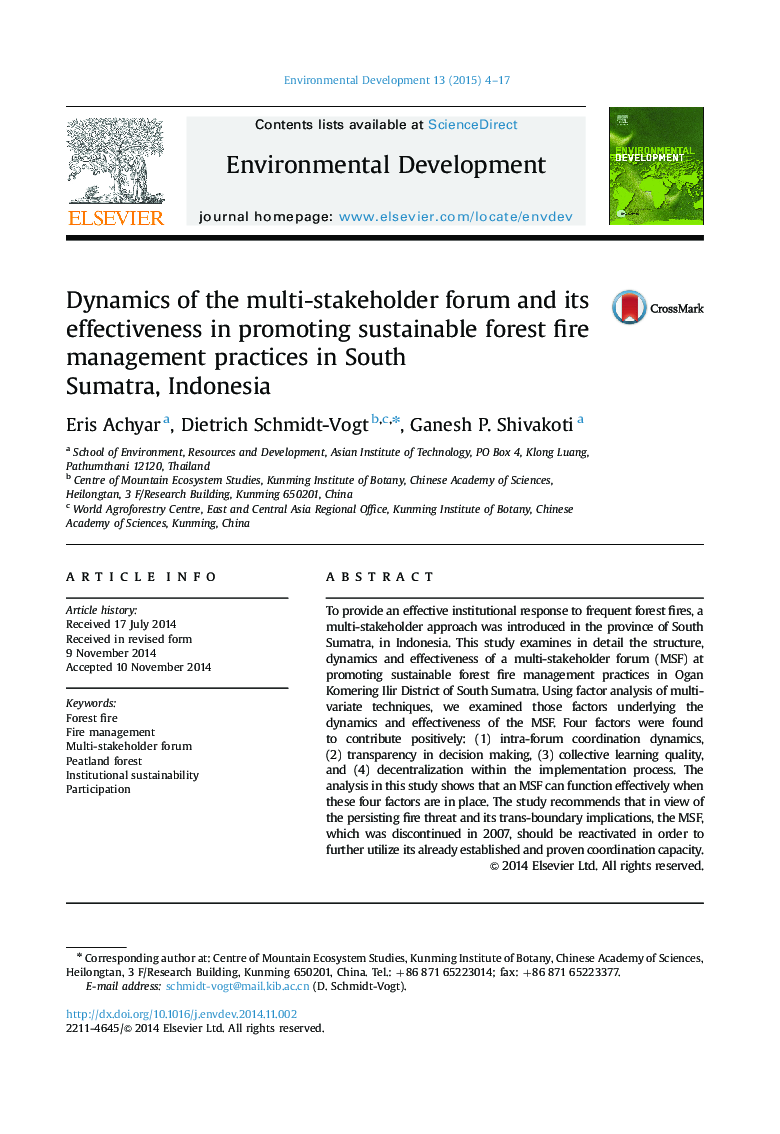| Article ID | Journal | Published Year | Pages | File Type |
|---|---|---|---|---|
| 4391434 | Environmental Development | 2015 | 14 Pages |
•MSF is a proven instrument to deal with the persisting fire hazard in Indonesia and its implications for neighboring countries.•Factors determining the effectiveness of the MSF are internal coordination, transparent decision-making, collective learning, and decentralization.•MSF has contributed actively to reduction of fire risks and impacts through increased coordination and consultation among stakeholders.•MSF has been conducive to the institutionalization of fire control and management at district level.
To provide an effective institutional response to frequent forest fires, a multi-stakeholder approach was introduced in the province of South Sumatra, in Indonesia. This study examines in detail the structure, dynamics and effectiveness of a multi-stakeholder forum (MSF) at promoting sustainable forest fire management practices in Ogan Komering Ilir District of South Sumatra. Using factor analysis of multi-variate techniques, we examined those factors underlying the dynamics and effectiveness of the MSF. Four factors were found to contribute positively: (1) intra-forum coordination dynamics, (2) transparency in decision making, (3) collective learning quality, and (4) decentralization within the implementation process. The analysis in this study shows that an MSF can function effectively when these four factors are in place. The study recommends that in view of the persisting fire threat and its trans-boundary implications, the MSF, which was discontinued in 2007, should be reactivated in order to further utilize its already established and proven coordination capacity.
